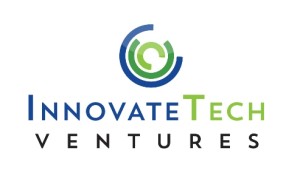Startup’s tech matches cancer patients with chemo, drugs
By: Morgan Eichensehr
June 28, 2017
A local startup wants to help doctors determine which drugs and chemotherapies will best treat different types of cancer. It’s building a device that can do that.
The University of Maryland, Baltimore and University of Maryland, College Park have granted Cellth Systems exclusive licensing rights for the commercial development of a technology that allows real-time analysis of how circulating tumor cells in a patient’s blood respond to different drug treatments. The company has also won a $150,000 grant from Maryland Technology DevelopCorp. to push the technology toward commercialization.
Researchers from the Maryland universities have worked on the developing this technology and the science behind it for over a decade, said Cellth Systems CEO Richard Hughen. Now, Cellth has full rights to its prototype device that can employ the technology and screen tumor cells. To start, the company is just focusing on screening breast cancer cells.
“It’s great to think about how valuable this would really be,” Hughen said. “This would be a first-of-its-kind device with the ability to give an oncologist real, actionable information on how to help treat a cancer patient.”
Phil Robilotto, chief commercialization officer at UM Ventures, said granting Cellth the licensing rights will help the company raise money and drive the technology forward. He said the license is the first step for Cellth to execute on a business plan that will hopefully result in a profitable commercial product.
The UM Ventures is a joint initiative between UMD and UMB designed to push research coming out of the universities toward becoming commercial technologies. Hughen has a background in medical device businesses and is one of UM Ventures’ entrepreneurs in residence.
Hughen said Cellth will use the new TEDCO funding to continue development of its device, which it hopes to have ready for commercial sale by the end of March 2018. He said the company also hopes to win a Small Business Innovation Research grant from the National Institutes of Health, which will put another $250,000 in funding behind the development and allow Cellth to expand its screening capabilities to other kinds of cancer cells as well, like prostate, lung and colon cancer.
Cellth will also look to win Food and Drug Administration approval for its device, which will include a series of clinical trials.
Hughen said the company will look to raise more capital as it hits some of these development milestones. He also plans to add more technologists, biologists and chemists to the four-person company over the coming year and said the firm will likely need to look for wet lab space to lease as well.
The first customers for Cellth’s prototype will be university researchers, Hughen said. After the company gets early data from research and lab tests, and matures the final product, Cellth ultimately hopes to sell its device to drug developers and pharmaceutical industry researchers.
